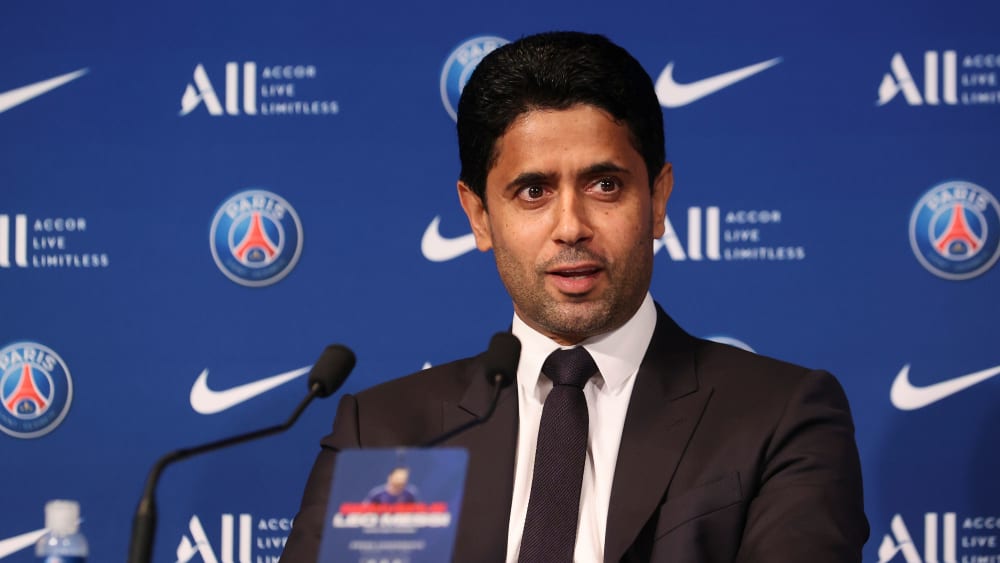State- and oligarch-financed clubs are tugging at the Financial Fair Play. The leagues and especially the DFL are warning against a total opening for subsidies.
There are people who would be delighted if even more money were blown into football. People like Jonathan Barnett, who last week demanded via Bild: “I think the Bundesliga should repeal its 50+1 rule.” Let in unlimited investors, sheikhs and oligarchs in order to remain competitive – that’s the motto of those who hold a similar opinion to the player mediator. Barnett has a natural interest in monetary infusions into the game because more money in the market means more commission – most clubs do not share this view. Whereas: the usual suspects do.
Transfer fees are depreciated over the long contract terms and artificially kept down
And so a handful of clubs use their influence to destroy Financial Fair Play in Europe in its current sense. They are tugging at the maximum deficit of 30 million euros that a club is allowed to make up per past three years via investor subsidies. Of course, PSG boss Nasser Al-Khelaifi may be right when he claims to have complied with FFP this summer despite new stars on the Seine such as Lionel Messi, Gianluigi Donnarumma (both on loan) or Achraf Hakimi (approx. 60 million euros). But in addition to salaries in the millions, the transfer sums are also written off over the long terms of the contracts and thus kept artificially small.
Impression of a sleight of hand
At the beginning of the pandemic, parts of the club association ECA already wanted to shoot down the restrictions, while the European Leagues – represented by the DFL – pleaded for implementing the regulations and only compensating for the negative effects, especially missing spectator revenues, in the FFP-relevant calculations. The result was a difficult compromise: the clubs can compensate for negative effects, whereby the financial years 2020 and 2021 are analysed together and on average. This gives the impression of a sleight of hand. Put simply: if a club spends €100 million twice, in effect €200 million, only €100 million will be included in the calculation due to the averaging rule.
“Clubs with investors without expected returns would benefit “
All in all, COVID-19 is the top argument of the megalomaniacs with deep pockets, whether they want to throw their billion-dollar graves with a Super League or with investor subsidies. As early as March, the German Football League warned its members: Watch out, something is happening. It presented a chart on the UEFA proposal for FFP deregulation (see below) and came to the conclusion: “Clubs with investors with no expectation of returns would benefit.” In other words: sovereign wealth funds and oligarchs. In August, the DFL publicly sounded the alarm in the person of Dr Marc Lenz, who is responsible for international affairs. This underlines the extent of the league’s concern, which knows La Liga and the Premier League are on its side.
In addition to the lifting of the cap on external subsidies, two other aspects are causing stomachaches for the German clubs: the squad limit rule, i.e. the cap on squad costs to a planned 70 per cent of total revenue, and the luxury tax. The former would come close to a salary cap and would thus be in the sense of the German representatives. The problem is the following backdoor: the limit only applies to the 25 professionals entered for UEFA competitions. The association would thus open the door to circumventions such as loan shadow squads at partner clubs, which in the medium term only serve to generate counter-values through transfers, or squad sharing at oligarch clubs in national and international competitions.
Ceferin: “This must be a robust set of rules “
The luxury tax is intended to sanction violations. Even though UEFA boss Aleksander Ceferin recently said in Der Spiegel: “This tax would have to be very, very high. If the rule is that a club can only spend 300 million euros, but it ends up spending 500 million, then it would possibly have to pay another 200 million, which would go to the others. That has to be a robust set of rules.” Critics see the danger of super-rich Middle Eastern club owners smiling wearily and paying the sanctions out of petty cash. After all, they are not concerned with sound economics, but with sportswashing. And UEFA’s failures against PSG and Manchester City before CAS document just how “robust” the previous set of rules actually was in the event of infringements.
Dr. Stopper: “Creation of a Superleague under the umbrella of UEFA “
No wonder experts like Dr. Martin Stopper warn: “Opening up the financial fair play rules to the effect that the inflow of investor money is no longer regulated and that non-football sources of money are legitimised without limit, as is currently planned, means the creation of a Superleague under the umbrella of UEFA.” In the eyes of the Munich sports lawyer, this would mean that “the concept of so-called football-related revenues, which are currently relevant, would have had its day. Not good news for the ‘competitive balance’ in football!” Models that are ready for decision are to be developed by December. Then it will be decided whether Europe’s football will go the way of pure money.
UEFA proposal on FFP realignment
Post 2022 (TBC)
Proposal: strong deregulation
Sign. Change by Liberalisation envisaged by investors
Investor-funded total cost would be unlimited. Clubs with investors with no expectation of return would benefit.
– Focus: Fin. Sustainability, i. e. based on revenue plus investor money
– No limit on “related party contributions” to total cost funding
– Limitation of UEFA squad costs (25 players) seems insufficient





